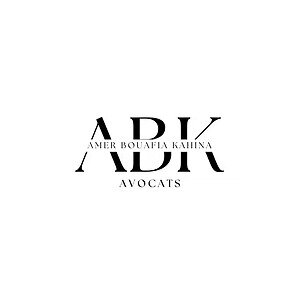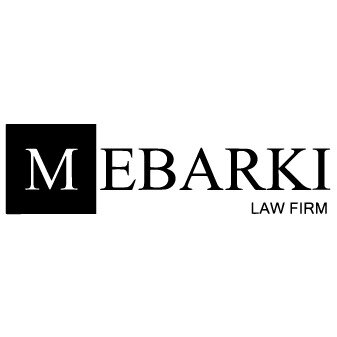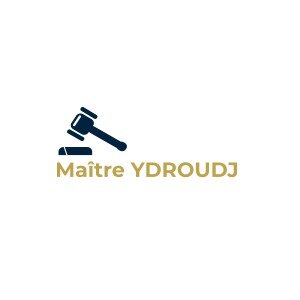Best Public-Private Partnerships (PPP) Lawyers in Algeria
Share your needs with us, get contacted by law firms.
Free. Takes 2 min.
Or refine your search by selecting a city:
List of the best lawyers in Algeria
About Public-Private Partnerships (PPP) Law in Algeria
Public-Private Partnerships (PPP) in Algeria refer to contractual arrangements between the public sector (government entities) and private sector companies for the development, financing, operation, or maintenance of public infrastructure or services. PPPs allow Algeria to leverage private sector expertise and investment to address infrastructure gaps and deliver critical public services such as transport, energy, water supply, health, and education. The PPP framework is designed to promote efficiency, innovation, and shared risk between public and private entities.
Why You May Need a Lawyer
Dealing with PPP projects in Algeria can be complex due to the many legal, regulatory, and contractual issues involved. Here are some common situations where legal assistance is beneficial:
- Understanding and complying with Algeria’s PPP laws and regulations
- Participating in the bidding or tendering process for a public contract
- Negotiating and drafting PPP project agreements or consortium arrangements
- Ensuring compliance with local content and licensing requirements
- Identifying and allocating risks among the parties involved
- Resolving disputes or addressing potential breaches of contract
- Navigating taxation, financing, or insurance requirements for foreign investors
- Advising on land acquisition, permits, and regulatory approvals
- Assisting with project termination or exit strategies
Local Laws Overview
Public-Private Partnerships in Algeria are governed by a set of laws, executive decrees, and sector-specific regulations. In 2016, Algeria introduced Law No. 18-18 on PPPs, outlining the legal framework for the conception, execution, and monitoring of PPP contracts. The main features of Algeria’s PPP laws include:
- Eligibility: Both Algerian and foreign private investors may participate, subject to certain restrictions and approval requirements.
- Procurement: PPP projects are awarded through a transparent tendering process, often involving prequalification and competitive bidding stages.
- Project Structure: PPP contracts can take different forms such as Build-Operate-Transfer (BOT), Build-Own-Operate (BOO), and concession arrangements, depending on the sector and nature of the project.
- Risk Allocation: Algeria’s PPP regulations emphasize clear identification and allocation of risks related to finance, design, construction, and operations.
- Local Content: There are requirements for local content and employment of Algerian workers, as well as obligations for technology transfer to support local capacity.
- Approval and Oversight: Multiple governmental bodies oversee PPP projects, including the Ministry of Finance, sectorial ministries, and a dedicated PPP unit for project evaluation.
- Dispute Resolution: Algeria encourages dispute resolution through negotiation or arbitration, with certain contracts allowing for international arbitration under defined conditions.
Frequently Asked Questions
What is a Public-Private Partnership (PPP) in Algeria?
A PPP in Algeria is a collaborative agreement between the government and a private sector company to finance, build, operate, or maintain public infrastructure or deliver public services.
Who can participate in PPP projects in Algeria?
Both Algerian and foreign private entities can participate, although some projects may prioritize local companies or joint ventures with local partners.
Are there specific sectors prioritized for PPPs in Algeria?
Yes, common sectors for PPPs include transportation (roads, airports, railways), energy, water and sanitation, healthcare, and education.
How are PPP projects awarded in Algeria?
Most PPP contracts are awarded through competitive bidding, following a public tendering process to ensure transparency and equal opportunity.
What legal due diligence is required in a PPP project?
Comprehensive legal due diligence includes reviewing the regulatory environment, land and permitting issues, compliance, project feasibility, and contractual obligations.
What are the main risks in PPP contracts?
Risks include construction and operational risks, financial risks, change in law or policy, force majeure events, and potential changes in demand or project scope.
Can foreign investors fully own PPP projects in Algeria?
There are restrictions on foreign ownership, particularly in strategic sectors, and requirements for joint ventures or local participation may apply.
What dispute resolution mechanisms are available?
Disputes may first be resolved through negotiation or mediation. If unresolved, parties can turn to arbitration, and in some cases, international arbitration may be permitted.
Are there tax incentives for PPP projects?
Some PPP projects, especially when aligned with national development priorities, may benefit from tax exemptions or customs duty relief, as provided by Algerian investment laws.
What is the typical duration of a PPP contract in Algeria?
PPP contracts vary based on project size and sector but often range from 5 to 30 years, depending on the agreement terms and project requirements.
Additional Resources
If you are seeking more information or assistance with PPP projects in Algeria, consider reaching out to the following organizations or bodies:
- Ministry of Finance - PPP Unit: Responsible for the evaluation and oversight of PPP projects
- National Investment Development Agency (ANDI): Provides information on investment procedures and incentives
- Relevant sectoral ministries (such as Energy, Transport, Health) for project-specific guidance
- Chamber of Commerce and Industry: Offers support and networking for foreign and domestic investors
- Legal and financial consultancy firms specializing in PPP and infrastructure
Next Steps
If you are considering involvement in a Public-Private Partnership in Algeria or require legal advice regarding a PPP project, it is advisable to:
- Identify and consult with a local lawyer or law firm experienced in PPP law and infrastructure
- Gather relevant project documents and carefully review regulations that apply to your sector
- Arrange a legal consultation to discuss project objectives, potential risks, and legal strategies
- Stay informed about legislative updates regarding PPP frameworks and investment incentives
- Engage early with regulatory authorities to clarify requirements and streamline approvals
Getting specialized legal guidance can help you navigate the complexities of PPPs in Algeria and increase the likelihood of a successful project outcome.
Lawzana helps you find the best lawyers and law firms in Algeria through a curated and pre-screened list of qualified legal professionals. Our platform offers rankings and detailed profiles of attorneys and law firms, allowing you to compare based on practice areas, including Public-Private Partnerships (PPP), experience, and client feedback.
Each profile includes a description of the firm's areas of practice, client reviews, team members and partners, year of establishment, spoken languages, office locations, contact information, social media presence, and any published articles or resources. Most firms on our platform speak English and are experienced in both local and international legal matters.
Get a quote from top-rated law firms in Algeria — quickly, securely, and without unnecessary hassle.
Disclaimer:
The information provided on this page is for general informational purposes only and does not constitute legal advice. While we strive to ensure the accuracy and relevance of the content, legal information may change over time, and interpretations of the law can vary. You should always consult with a qualified legal professional for advice specific to your situation.
We disclaim all liability for actions taken or not taken based on the content of this page. If you believe any information is incorrect or outdated, please contact us, and we will review and update it where appropriate.
Browse public-private partnerships (ppp) law firms by city in Algeria
Refine your search by selecting a city.












